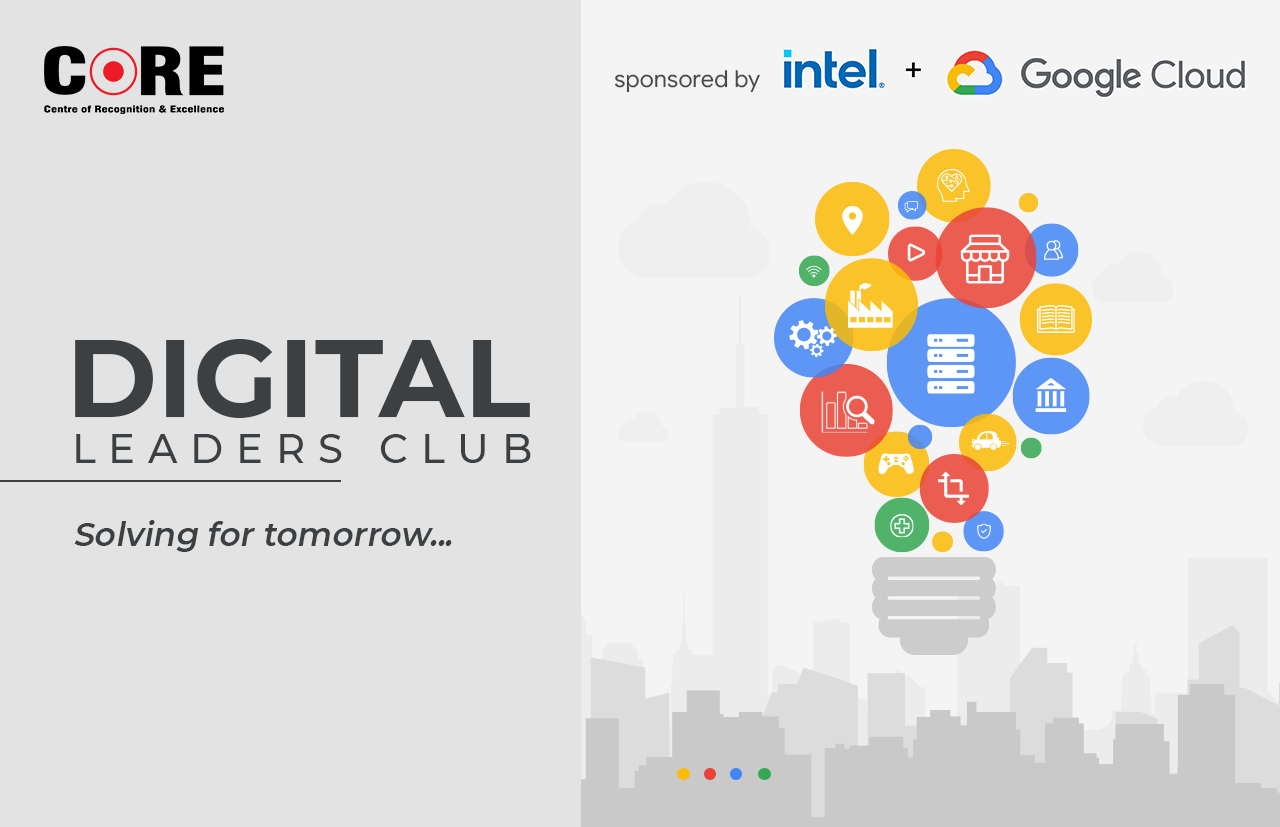- CIOs underscore the importance of innovative data-driven models to be future-ready
- Progressive tech leaders are leveraging data, AI/ML and analytics to drive better outcomes and enhance risk management
- CIOs highlight the need for embracing systems that are based on open standards, to enable innovation
As IT leaders are taking giant leaps in the digital journey of their respective organisations, their focus is equally on building data-driven organizations where business continuity & growth are founded on informed decisions and the ability to take those decisions in real-time.
Increasingly, industries such as pharma, retail, healthcare, financial services, and insurance are relooking at their data strategies, to arrive at new customer engagement models, fine-tune processes and deliver better services by staying within the boundaries of regulations.
The 8th edition of “Digital Leaders Club” – a unique collaboration platform for technology leaders, curated by CORE Media & Google Cloud India, set the context on how IT leaders have been leveraging data in a big way and are preparing towards being future-ready in their digital journey.
“Infrastructure modernization is the need of the hour, and very clearly data is at the core of it. Adoption of AI, ML, and IoT will only help enterprises in serving their consumers better and faster in the new world. In these challenging times, CIOs must look into what’s the priority, innovate, and take the digital journey forward,” opined Anoop Mathur, Founder & President, CORE Media, who moderated the discussion. Eminent CIOs and Google experts were part of this exclusive panel.
Chintan Shah of Google Cloud, added, “Business goals and needs have changed radically over the last one year. The way we consume services and information have also changed and it is going to have a lasting effect. Enterprises are therefore reprioritizing business goals and innovation objectives. At Google Cloud, we ensure that technologies and data are coming together to help enterprises meet those goals whether it’s about employees collaboration, faster delivery of services or better customer experience.”
Insurance companies, for example, are developing new data models as they address the challenges of stringent performance targets and huge pressure from the customers and the regulators in enabling better service and faster processing of claims. Most firms are leveraging digital platforms with their technology roadmap being relooked at.
A CIO of an insurance firm said, “With insurance sector now embracing massive digital wave, we have been investing a lot on aspects such as claims automation and claims analytics. For claims automation, AI and ML play a big role, and the respective models we have created have started giving the RoI. We are now preparing to build a data lake to take these initiatives to the next level.”
Rajat Pandit from Google Cloud’s customer engineering team, was of the view that, “Data is critical to building these new models around claims, underwriting, etc. And it has to be done at scale. Cloud is an important aspect here. The AI and ML models help improve the efficiency of false positives and the overall efficiency of the process.”
Another CIO of a pharma major informed that things are happening at a lightning speed In the pharma sector - whether it is digitization, automation, business intelligence, or to a large extent AI & ML. “The biggest challenge faced by the pharma industry is the speed at which the technology is adopted and the consequent cybersecurity concerns. IT has to address both these together and we cannot compromise on either . Most decisions in the pharma sector will be data-driven in the days to come. As the sector deals with a lot of unstructured data, knowledge management is another area of focus for the pharma industry,” he added.
For many of these data-intensive projects, CIOs are looking at leveraging the right platforms and cloud models.
In the words of a CIO of a consumer-lending fintech company, “In these unprecedented times, there has been a lot of changes in consumer behavior. The number of NPAs and defaulters has been on the rise. We have been building AI/ML models to address this. Our inherent cloud-first model also allowed us to quickly optimize our resources as we saw huge fluctuation in demand because of fewer loans and customers getting onboarded. Cloud has also enabled us to develop and deploy new products pretty early in the market.”
While building the right data models and modernizing IT infrastructure have been underlined as the need of the hour by many technology leaders, they also emphasized on the need to embrace systems that are based on open standards.Chintan summed up the conversation by highlighting how Google is promoting innovation by leaving the choice to the customer rather than getting them into proprietary frameworks. The next wave of agility and innovation for organisations will be driven largely by how they are able to leverage data and become future-ready, digitally.
Resources:


